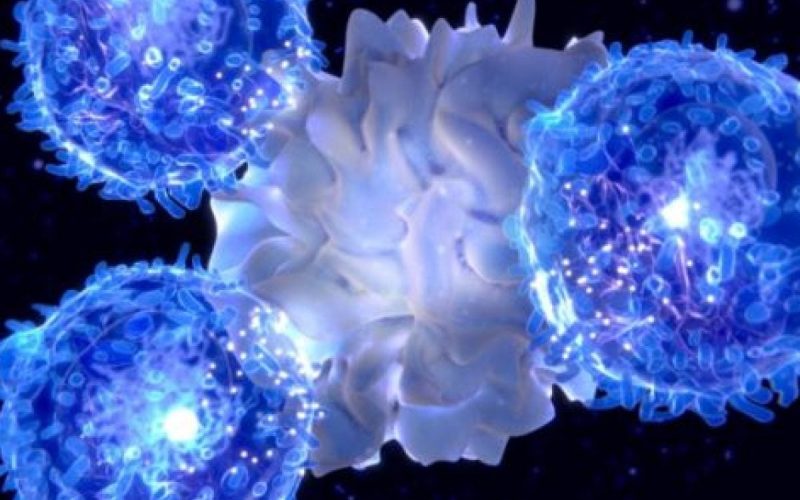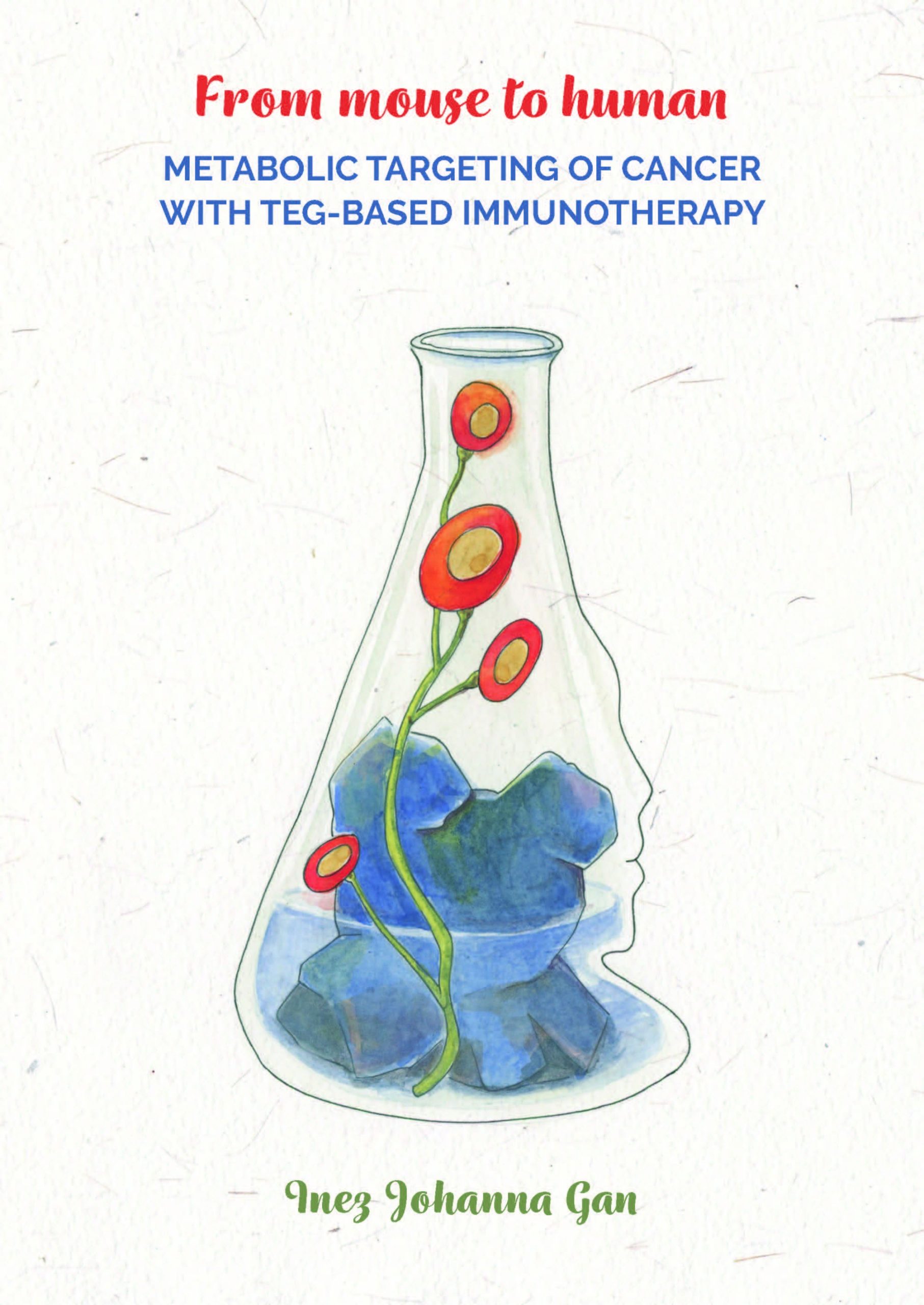In a series of preclinical studies, PhD candidate Inez Johanna and colleagues at UMC Utrecht provided nonclinical evidence of a good efficacy/safety balance of cell therapy based on conventional T cells engineered to express a defined γδT cell receptor (a new type of immunotherapy against cancer). As a result, one of these novel cell therapies is currently being investigated at UMC Utrecht in a Phase I study in adult patients with hematological malignancies.
The unconventional gamma delta T cells (γδT cells) – a specific type of immune cells – share the property of innate and adaptive immunity that allows recognition of infected, stress-induced, and malignant cells. They recognize such cells by sensing metabolic changes without the requirement of specific peptide representation on HLA molecules, making them applicable for a broader patient population compared to conventional T cells (αβT cells). Despite their promising potential, clinical responses of unmodified γδT cells are relatively marginal due to the underestimated diversity in γδT cell functions and molecular activation modes. Considering these obstacles, researchers of the Tumor Immunology group of prof. Jürgen Kuball at UMC Utrecht a few years ago introduced the concept of ‘αβT cells engineered to express a defined γδT cell receptor‘ (abbreviated as TEGs), where the highly tumor-reactive γδT cell receptor (γδTCR) is introduced into the αβT cell with superior proliferative capacity in cancer patients.
“Using the TEG concept, we could efficiently target a broad range of hematological and solid malignancies without the limitation of MHC-matching requirement. Furthermore, TEGs uncouple γδTCR from its innate-like environment, such as the interplay of NK receptors, that are not present in αβT cells. In this way, TEGs also mitigates the underestimated diversity of γδTCR, both in function and receptor expression”, said Inez Johanna, PhD candidate at the Center for Translational immunology, UMC Utrecht. Within the TEG concept, investigators have previously identified two distinct tumor-reactive γδTCRs: γ9δ2TCR (TEG001) and γ5δ1TCR (TEG011). The PhD thesis by Inez Johanna focuses on bridging the path from the laboratory to clinic by investigating the efficacy and safety balance of TEG001 and TEG011, in relevant preclinical in vitro and mouse models, thus highlighting their therapeutic potential prior to further clinical testing.
Before clinical implementation, the efficacy and safety profile of cell therapies, including TEGs, have to be evaluated carefully. Therefore, a careful choice of relevant preclinical models and appropriate study designs are pivotal to assess the efficacy/safety balance to support the successful translation of cell-based immunotherapy into the clinic. Within this context, Inez Johanna bridged the gap from preclinical development of different TEG formats to first-in-men studies. While in vitro assays provided some hints for efficacy and lack of toxicity, in vivo models are more valuable in studying the impact on the complete human hematopoietic compartments and studying important parameters that impact persistence, even in the absence of the appropriate target molecule.
Inez Johanna concludes: “Within the limitation of our preclinical mouse models, we could adequately assess the efficacy and safety of both TEG001 and TEG011. We provided nonclinical evidence of a good efficacy/safety balance for this type of cell therapy that has great promise to exert beneficial effects in cancer patients. We are therefore happy to announce that TEG001 is currently being tested at UMC Utrecht in a Phase I study in adult patients with relapsed/refractory acute myeloid leukemia, high-risk myelodysplastic syndrome or multiple myeloma.”
Inez Johanna Gan (1988, Jakarta, Indonesia) defended her PhD thesis on February 9, 2022 at Utrecht University. The title of her thesis is “From mouse to human: metabolic targeting of cancer with TEG-based immunotherapy”. Supervisor was prof. dr. Jürgen Kuball (Center for Translational Immunology and Department of Hematology, UMC Utrecht). Co-supervisors were dr. Zsolt Sebestyén and dr. Trudy Straetemans (both Center for Translational Immunology, UMC Utrecht). Inez Johanna Gan works as a post-doctoral researcher at the integrated Innovation Center for Advanced Therapies (ICAT), in which UMC Utrecht, Utrecht University, Hubrecht Center and Princess Máxima Center for Pediatric Oncology collaborate to bring advanced therapy medicinal products (ATMPs) and stem cell products to patients.

